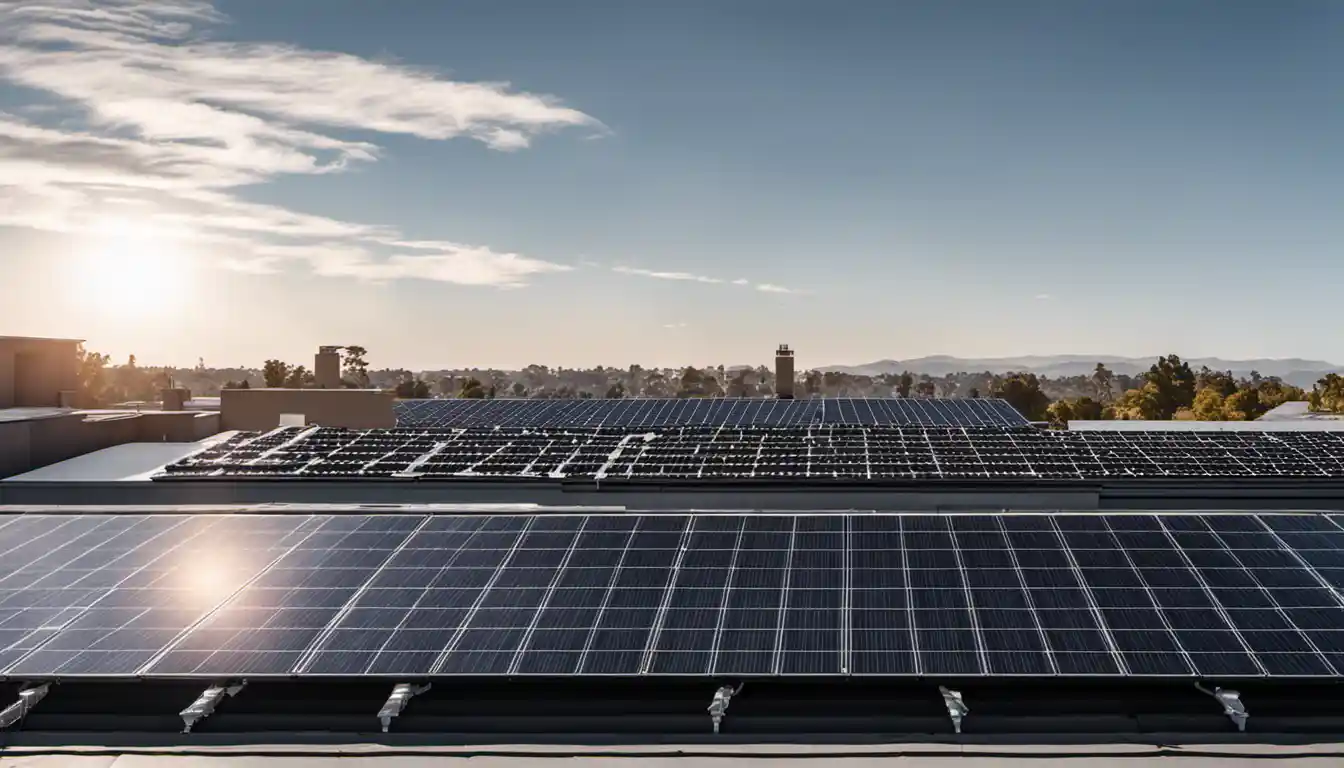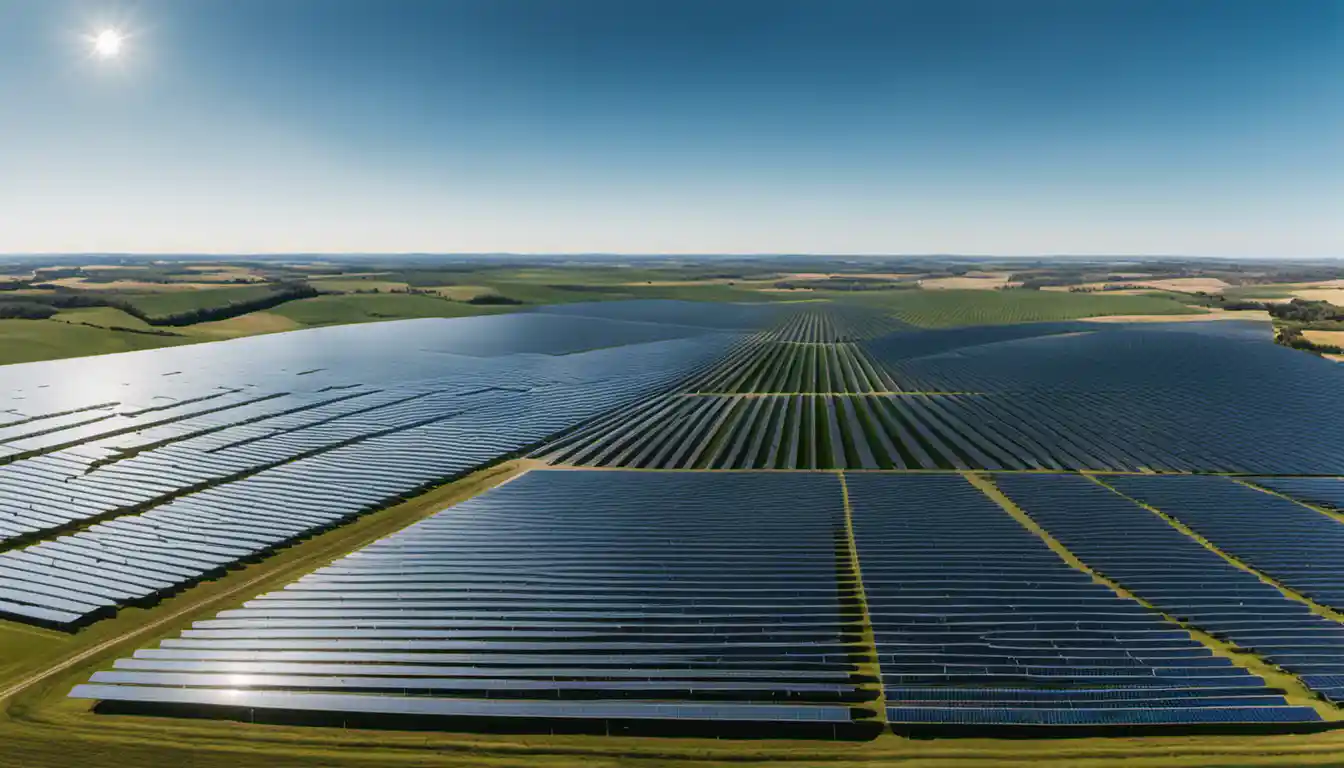Definition: Understanding Commercial and Residential Solar
Commercial and residential solar panels serve the same basic function of converting sunlight into electricity, but they differ in size, cost, and scale of operation. Commercial solar panels are typically larger in size, more expensive, and generate more power, as they are designed for large-scale energy needs. Residential solar panels, on the other hand, are smaller, more affordable, and adequate for the energy needs of a typical household.
Solar power is not a new concept, but its implementation can be tricky to understand. To clarify, the main idea behind solar power is to utilize the abundant energy from the sun and convert it into usable electricity for our daily needs. These needs may vary, which is where we begin to see the distinction between residential and commercial solar panels.
Conceptualizing Solar Power
Solar power is established by harnessing light energy from the sun through photovoltaic cells present in solar panels. The light energy, or photons, strike these solar cells and free the electrons, creating an electric circuit and, in turn, usable electricity.
Description of Residential Solar Panels
Residential solar panels are typically compact, designed to maximize energy production within a limited space without being overly intrusive. An average residential solar panel system might range from 3 to 8 kW, depending on the household’s energy needs and roof space.
Description of Commercial Solar Panels
Commercial solar panels, while utilizing the same basic principles as residential panels, are commonly designed with larger power requirements in mind. Commercial facilities, due to their larger energy needs, generally install systems that range from 25 kW to several MWs. You can find more detailed information about them here.
Distinctive Attributes: Commercial vs Residential Solar Panels

Size and Power: Bigger Commercial vs Smaller Residential Panels
In general, commercial solar panels are larger and more powerful than residential ones. They need to cater to the enormous power needs of commercial facilities, such as office blocks, shopping centers, and factories. On the flip side, residential solar panels have a much smaller footprint, specializing in catering to the energy requirements of a single household.
Design and Composition: Complexity of Commercial Panels vs Simplicity of Residential Panels
Due to their scale, commercial solar installations often include complex monitoring systems, multiple inverters, and a more intricate setup than residential arrays. Residential systems are more straightforward, typically consisting of a simple configuration of panels, an inverter, and occasionally, storage batteries.
Installation Process: Lengthy Commercial vs Shorter Residential Installations
The installation process of commercial and residential solar panels significantly differs. Largely due to their scale, commercial installations are project-based endeavors and typically take a longer time to complete. Residential installations are quicker, often completed within a couple of days.
Details of Differences: Expanding on the Variances
Initial Comparison: Face Value Differences

The face value differences between commercial and residential solar panels are clear in their physical attributes and installation practices. Commercial panels are larger, more powerful, and require a longer installation process.
Deeper Divergence: Technical Differences
The technical differences dive into the realms of efficiency, power output, and price per watt. Typically, a commercial solar system can generate a higher efficiency due to being installed in wide-open spaces without obstructions that cause shading. The size and power output of commercial panels also allow for a lower cost-per-watt than residential panels.
Communication: Customer Interaction and Educational Needs
From a customer interaction standpoint, commercial clients often demand more detailed technical data and predictive modeling for their solar projects. Conversely, residential customers seek simplicity and ease of installation.
Financial Matters: Comparing Costs and Financing
Comparative Costs: High Initial Commercial Costs with Lower Cost Per Watt
While the upfront cost of commercial systems is higher, due to economies of scale, the cost per watt is lower for commercial systems than residential ones. This makes commercial solar power installations more financially efficient in the long run.
Financing: Accessibility and Differences in Residential and Commercial Solar Projects

Significant differences are also evident in the financing options available for commercial and residential solar projects. Commercial establishments can access Power Purchase Agreements (PPAs), leased, or financed systems, while homeowners can opt for payment in cash, loans, or leases.
Wrap Up: Choosing Correct Solar Solution
Key Factors to Consider
When choosing between commercial vs residential solar panels, key factors include your energy requirements, budget, space availability, and long-term goals for going solar.
Suitability for Different Types of Users
Residential solar panels are ideal for homeowners looking to cut down their electricity bills and reduce their carbon footprint. Commercial solar panels are best suited for businesses looking to drastically lower their operational costs and exhibit their commitment to sustainability.
Future Trends and Predictions in Solar Energy Industry
With the converging trends of rising electricity costs, falling solar prices, and increasing environmental awareness, the future of both residential and commercial solar looks bright. Irrespective of the differences between commercial and residential panels, solar is undeniably a wise investment in a sustainable future – for all types of users.
By understanding the differences between commercial vs residential solar panels, you can make an informed decision, suitable for your specific context. As I’ve established in the past 20 years working with solar, it’s not a one-size-fits-all, but it certainly is a solution that fits many.



